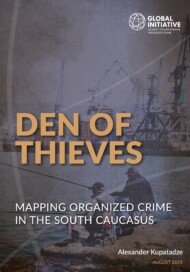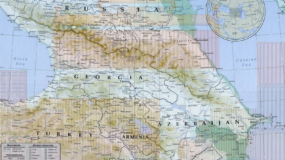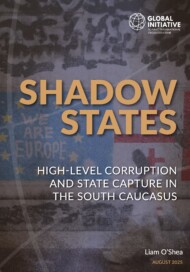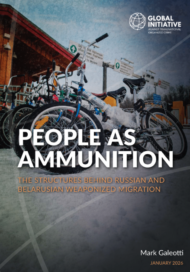Event Details
Where
Zoom
Posted on 30 Sep 2025
At a geographic intersection between East and West, the South Caucasus has long sought to work with, or contend with, external powers on either side of the compass. The countries in the former Soviet region – Armenia, Azerbaijan and Georgia – count countries as geopolitically apart as the EU bloc, the US, Türkiye, China, Kazakhstan, the Gulf states and Iran among their allies and partners.
They have learned to deftly leverage the political clout of their larger neighbours to their advantage as a matter of survival and profit. As a result of this pragmatic and non-aligned approach, the region has become a haven for those seeking to exploit the system and the region’s transnational connections, leading to a flourishing illicit economy. Criminal activities have arguably become one of the region’s most influential exports. After emerging during the latter days of the Soviet Union, criminal networks sought new opportunities, with ethnic groups of the former Soviet empire specializing in certain regions and illicit markets.
Armenian criminal groups established a firm footing in the US, France and Lebanon, where, today, their activities include loan sharking, money laundering and human trafficking. Azerbaijani networks have strong ties to Türkiye, Russia and other neighbouring countries, and are involved in drug and human trafficking and the illicit trade in caviar, among other markets. Georgian groups maintain a prominent presence in European cities, where they top the leader board in organized burglary and theft. Although the domestic space for these activities had shrunk in recent decades following the suppression of criminal networks in Azerbaijan through state control, and anti-corruption reforms instigated by the Rose and Velvet Revolutions in Georgia and Armenia, criminality and illicit economic activity are on the rise again in the region.
The war in Ukraine and mounting sanctions against Russia have re-created opportunities for regional economic actors, helping the South Caucasus to emerge as a hub for sanctions evasion. Much illicit trade is driven by oligarchs and their networks, who accumulated their wealth in Russia and maintain close ties with political actors and businesspeople in the region, using these relationships to manage large-scale sanctions evasion activities. Against the backdrop of a recent peace deal between Armenia and Azerbaijan and developments in the Russo-Ukrainian war, the landscape in the region continues to shift. As past evidence has shown, criminal actors are often the first to respond to new opportunities and partnerships, wherever they may be. The South Caucasus has since the end of the Soviet era been an amenable environment for criminal actors. In a volatile geopolitical climate, it warrants close attention once again as a potential hub for emerging criminal dynamics in this shifting landscape.
The webinar will highlight two recent GI-TOC reports that look at the current landscape around transnational crime and illicit economies in the South Caucasus that cover these issues. Looking at the region through a lens of transnational crime and illicit activity, panelists will answer questions around who are the key actors, what are the main markets and what are the main drivers of such activity in the region that strategically bridges two continents.



